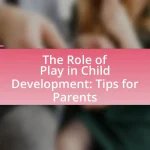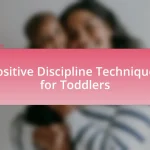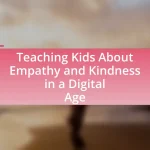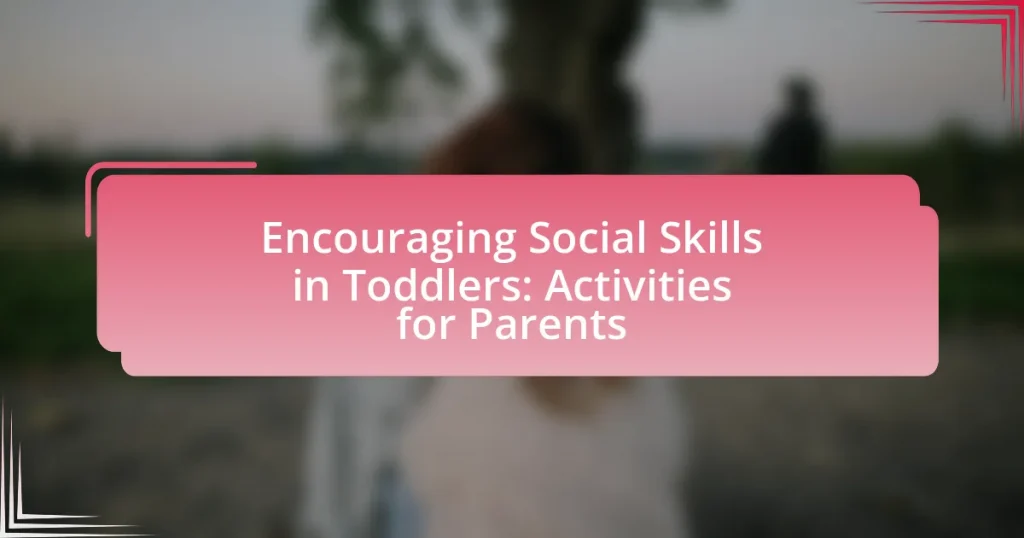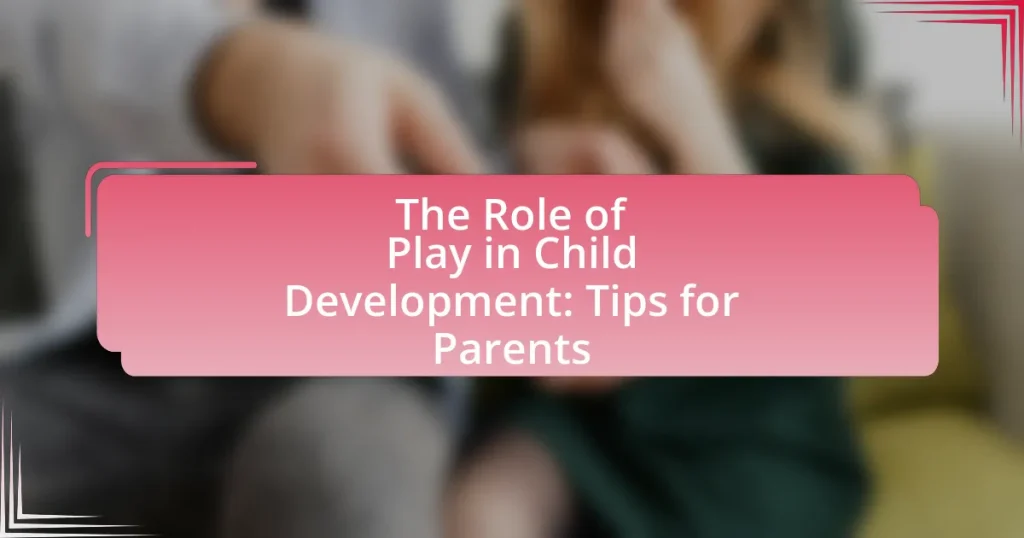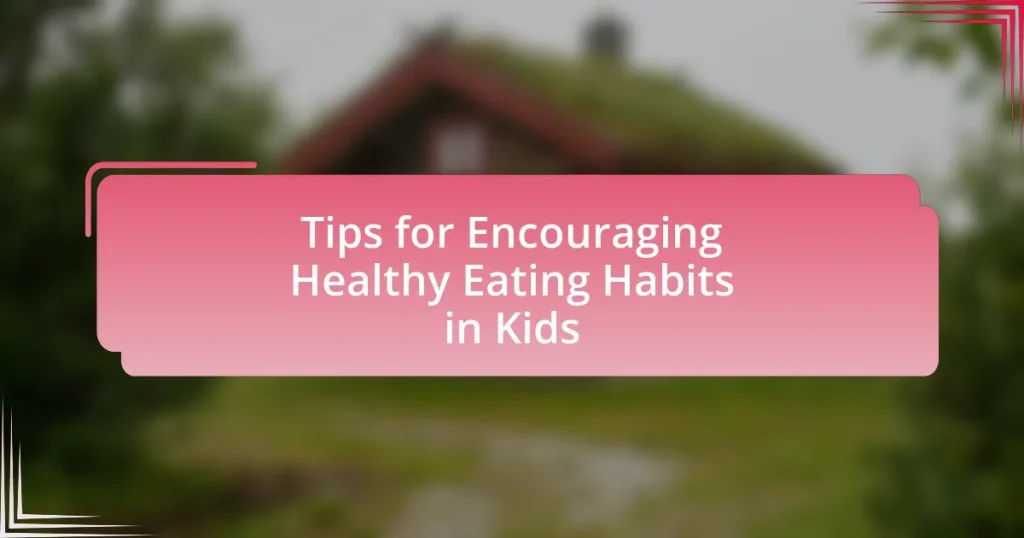The article focuses on the importance of encouraging social skills in toddlers, highlighting their role in effective communication, empathy, cooperation, and conflict resolution. It outlines how social skills develop through interactions with caregivers and peers, detailing key milestones such as parallel play and sharing. The article emphasizes the influence of environmental factors and parental involvement in fostering these skills, providing practical strategies for parents, including structured activities and modeling positive behaviors. Additionally, it addresses common challenges parents face and offers resources to support social skill development in young children.

What are Social Skills and Why are They Important for Toddlers?
Social skills are the abilities that enable toddlers to interact effectively with others, including communication, empathy, cooperation, and conflict resolution. These skills are crucial for toddlers as they lay the foundation for future relationships and social interactions. Research indicates that children with strong social skills are more likely to succeed academically and develop positive relationships throughout their lives. For instance, a study published in the journal “Child Development” found that social competence in early childhood is linked to better academic performance in later years. Thus, fostering social skills in toddlers is essential for their overall development and future success.
How do social skills develop in early childhood?
Social skills develop in early childhood through interactions with caregivers, peers, and the environment. During this stage, children learn to communicate, share, and cooperate, which are foundational elements of social skills. Research indicates that children as young as two years old begin to engage in parallel play, where they play alongside peers, fostering social awareness and interaction. By age three, children typically start to engage in cooperative play, which enhances their ability to negotiate, take turns, and resolve conflicts. Studies show that consistent positive interactions with adults and peers significantly contribute to the development of empathy and emotional regulation, essential components of social skills.
What are the key milestones in social skill development for toddlers?
Key milestones in social skill development for toddlers include parallel play, sharing, and basic communication. By around 2 years of age, toddlers typically engage in parallel play, where they play alongside other children without direct interaction. As they approach 3 years, they begin to show the ability to share toys and take turns, indicating an understanding of social norms. Additionally, toddlers start to use simple phrases and gestures to communicate their needs and feelings, which is crucial for social interaction. Research indicates that these milestones are essential for later social competence, as they lay the foundation for more complex social skills in preschool and beyond.
How do environmental factors influence social skill development?
Environmental factors significantly influence social skill development by shaping the contexts in which children interact and learn. For instance, children raised in nurturing environments with supportive caregivers tend to develop stronger social skills due to positive reinforcement and modeling of appropriate behaviors. Research indicates that children exposed to diverse social settings, such as playgroups or community activities, enhance their ability to communicate and collaborate with peers, as these experiences provide opportunities for practice and feedback. Additionally, studies show that socioeconomic status can impact access to resources like educational programs and social activities, further affecting the development of social skills.
What role do parents play in fostering social skills?
Parents play a crucial role in fostering social skills by modeling appropriate behaviors and providing opportunities for interaction. Through daily interactions, parents demonstrate communication, empathy, and conflict resolution, which children observe and imitate. Research indicates that children who engage in regular social activities with their parents, such as playdates or group activities, develop stronger social competencies. For instance, a study published in the Journal of Child Psychology and Psychiatry found that parental involvement in social activities significantly enhances children’s ability to form friendships and navigate social situations effectively.
How can parental involvement impact a toddler’s social interactions?
Parental involvement significantly enhances a toddler’s social interactions by providing emotional support and modeling social behaviors. When parents actively engage in their child’s play and social activities, toddlers learn essential skills such as sharing, empathy, and communication. Research indicates that children with involved parents exhibit better social competence and are more likely to form positive relationships with peers. For instance, a study published in the Journal of Child Psychology and Psychiatry found that parental engagement is linked to improved social skills and reduced behavioral problems in young children. This evidence underscores the critical role parents play in shaping their toddlers’ social development.
What are the signs that a toddler may need help with social skills?
Signs that a toddler may need help with social skills include difficulty making eye contact, limited interest in playing with peers, and challenges in sharing or taking turns. These behaviors indicate potential struggles in understanding social cues and engaging in cooperative play. Research shows that toddlers who exhibit these signs may benefit from targeted interventions to enhance their social development, as early support can lead to improved social interactions and relationships later in life.
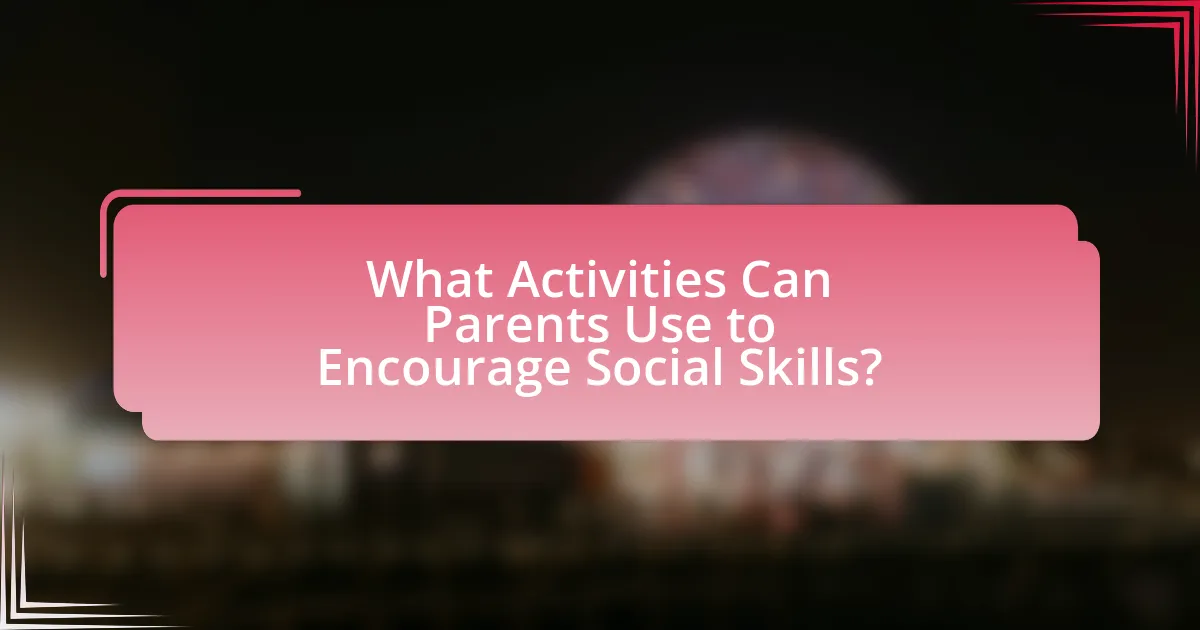
What Activities Can Parents Use to Encourage Social Skills?
Parents can encourage social skills in toddlers through activities such as role-playing, group playdates, and cooperative games. Role-playing allows children to practice social scenarios, enhancing their communication and empathy skills. Group playdates provide opportunities for toddlers to interact with peers, fostering sharing and turn-taking. Cooperative games, which require teamwork to achieve a common goal, teach collaboration and problem-solving. Research indicates that engaging in these activities can significantly improve children’s social competence and emotional understanding, as highlighted in studies on early childhood development.
What types of play promote social skills in toddlers?
Types of play that promote social skills in toddlers include cooperative play, parallel play, and imaginative play. Cooperative play involves toddlers working together towards a common goal, which fosters teamwork and communication skills. For example, building a block tower together requires sharing ideas and negotiating roles. Parallel play, where toddlers play alongside each other without direct interaction, helps them learn to observe and understand social cues. Imaginative play, such as role-playing or pretending, encourages empathy and perspective-taking as toddlers explore different characters and scenarios. Research indicates that these types of play are crucial for developing social competencies, as they provide opportunities for interaction and learning in a social context.
How does cooperative play enhance social interactions?
Cooperative play enhances social interactions by fostering communication, teamwork, and empathy among participants. Engaging in activities that require collaboration, such as building a structure together or playing team-based games, encourages toddlers to express their thoughts and negotiate roles, which strengthens their verbal and non-verbal communication skills. Research indicates that children who participate in cooperative play are more likely to develop positive social behaviors, such as sharing and taking turns, which are essential for forming friendships. A study published in the Journal of Applied Developmental Psychology found that children involved in cooperative play showed increased levels of social competence and reduced aggression, highlighting the significant impact of such interactions on social development.
What role does imaginative play have in developing empathy?
Imaginative play plays a crucial role in developing empathy by allowing children to explore different perspectives and emotions. During imaginative play, children engage in role-playing scenarios that require them to consider the feelings and viewpoints of others, fostering an understanding of diverse emotional experiences. Research indicates that children who participate in imaginative play demonstrate higher levels of empathy, as they learn to navigate social interactions and respond to the emotions of their peers. For example, a study published in the journal “Child Development” by researchers Sara Meadows and David A. L. Smith found that children who frequently engage in pretend play show greater empathy and social competence compared to those who do not. This evidence underscores the importance of imaginative play in nurturing empathetic skills in young children.
How can structured activities support social skill development?
Structured activities can significantly enhance social skill development by providing children with opportunities to interact, collaborate, and communicate in a guided environment. These activities, such as group games or team projects, encourage toddlers to practice sharing, taking turns, and resolving conflicts, which are essential components of social interaction. Research indicates that structured play can lead to improved social competence, as children learn to navigate social norms and develop empathy through direct engagement with peers. For instance, a study published in the Journal of Applied Developmental Psychology found that children who participated in structured group activities exhibited higher levels of social skills compared to those who engaged in unstructured play.
What are some effective group activities for toddlers?
Effective group activities for toddlers include circle time, where children gather to sing songs and share stories, promoting listening and communication skills. Additionally, group art projects, such as finger painting or collaborative mural creation, encourage teamwork and creativity. Structured games like “Simon Says” or “Duck, Duck, Goose” enhance following directions and social interaction. Research indicates that these activities foster essential social skills, as toddlers learn to cooperate, share, and engage with peers in a supportive environment.
How can parents create opportunities for socialization in everyday routines?
Parents can create opportunities for socialization in everyday routines by incorporating interactive activities that encourage communication and cooperation. For example, involving toddlers in grocery shopping allows them to engage with store staff and other shoppers, fostering social interactions. Additionally, organizing playdates or group activities during routine outings, such as visiting parks or attending community events, provides structured environments for children to practice social skills. Research indicates that children who regularly engage in social activities develop better communication skills and emotional intelligence, which are crucial for their overall development.
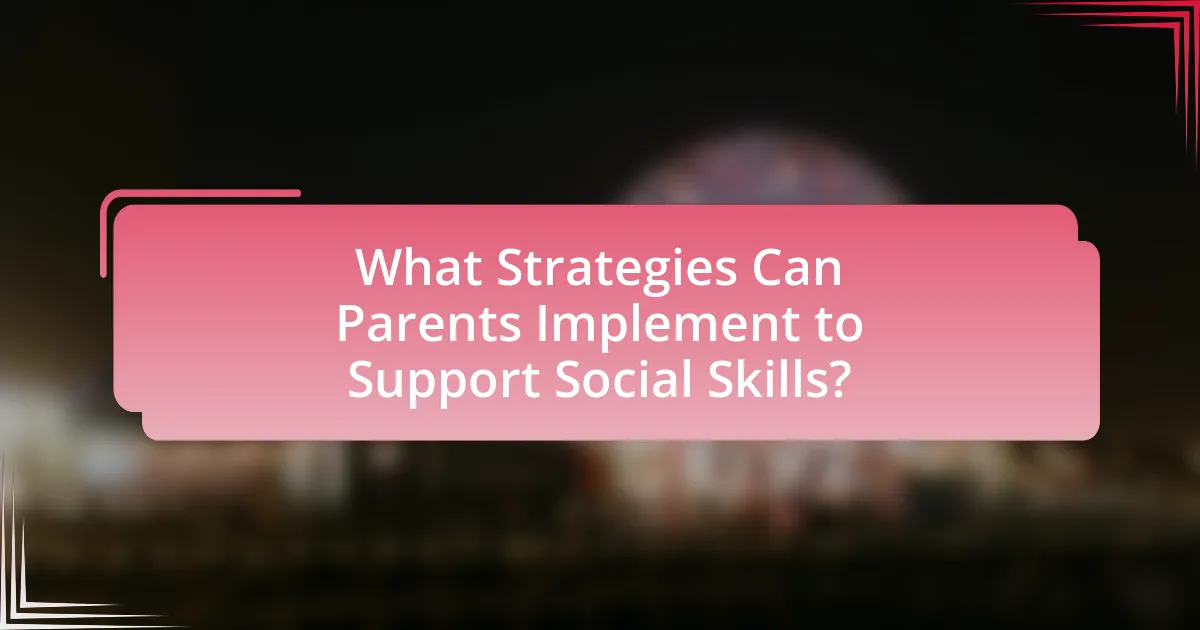
What Strategies Can Parents Implement to Support Social Skills?
Parents can implement strategies such as role-playing, modeling positive interactions, and facilitating playdates to support social skills in toddlers. Role-playing allows children to practice social scenarios, enhancing their ability to navigate real-life interactions. Modeling positive interactions demonstrates effective communication and empathy, which children can emulate. Facilitating playdates provides opportunities for toddlers to engage with peers, fostering cooperation and conflict resolution skills. Research indicates that structured play and guided interactions significantly improve social competence in early childhood, highlighting the effectiveness of these strategies.
How can parents model positive social behaviors?
Parents can model positive social behaviors by demonstrating respectful communication, empathy, and cooperation in their daily interactions. For instance, when parents engage in active listening and express understanding towards others, they teach their children the importance of valuing others’ perspectives. Research indicates that children who observe their parents practicing empathy are more likely to exhibit empathetic behaviors themselves, as shown in a study published in the Journal of Child Development, which found a direct correlation between parental empathy and children’s social competence. Additionally, parents can encourage sharing and teamwork through collaborative activities, reinforcing the idea that positive social interactions lead to stronger relationships.
What specific behaviors should parents demonstrate for effective modeling?
Parents should demonstrate positive social behaviors such as active listening, sharing, and empathy for effective modeling. Active listening involves giving full attention to a child when they speak, which teaches them the importance of communication and respect. Sharing behaviors, such as taking turns during play, illustrate cooperation and fairness. Empathy can be shown by acknowledging a child’s feelings and responding appropriately, fostering emotional intelligence. Research indicates that children learn social skills through observation; for instance, a study published in the Journal of Child Development found that children who observed their parents engaging in positive social interactions were more likely to exhibit similar behaviors themselves.
How can parents encourage sharing and turn-taking at home?
Parents can encourage sharing and turn-taking at home by modeling these behaviors themselves and creating structured opportunities for practice. When parents demonstrate sharing their own items or taking turns during activities, children learn through observation. Additionally, parents can set up playdates or group activities that require sharing toys or taking turns, reinforcing these skills in a social context. Research indicates that children who engage in cooperative play are more likely to develop positive social skills, as noted in studies by the American Academy of Pediatrics, which emphasize the importance of social interactions in early childhood development.
What are some common challenges parents face in teaching social skills?
Parents commonly face challenges such as a lack of understanding of social skills, inconsistent reinforcement, and varying developmental stages in their children when teaching social skills. Many parents may not fully grasp what specific social skills entail, leading to ineffective teaching methods. Inconsistency in reinforcing social behaviors can confuse children, making it difficult for them to learn appropriate interactions. Additionally, children develop at different rates, which can complicate the teaching process, as parents may struggle to tailor their approaches to meet individual needs. Research indicates that effective social skills training requires a clear understanding of developmental milestones and consistent practice, highlighting the importance of these factors in overcoming the challenges parents encounter.
How can parents address shyness or reluctance in social situations?
Parents can address shyness or reluctance in social situations by gradually exposing their children to social interactions in a supportive environment. This approach allows children to build confidence and social skills over time. Research indicates that structured playdates and group activities can significantly enhance social competence in children, as these settings provide opportunities for practice and positive reinforcement. For instance, a study published in the Journal of Child Psychology and Psychiatry found that children who participated in regular social activities showed improved social skills and reduced anxiety in social settings.
What strategies can help manage conflicts between toddlers?
To manage conflicts between toddlers, parents can implement strategies such as modeling conflict resolution, using distraction techniques, and encouraging sharing. Modeling conflict resolution involves demonstrating how to express feelings and negotiate solutions, which helps toddlers learn appropriate behaviors. Distraction techniques can redirect toddlers’ attention to a different activity or toy, effectively diffusing the situation. Encouraging sharing by praising cooperative behavior reinforces positive interactions and teaches toddlers the value of taking turns. Research indicates that these strategies can significantly improve social skills and reduce conflicts among young children, as they foster communication and empathy.
What are the best practices for reinforcing social skills at home?
The best practices for reinforcing social skills at home include modeling appropriate social behaviors, providing opportunities for play with peers, and engaging in role-playing activities. Parents should demonstrate positive interactions, such as sharing and taking turns, which children can observe and imitate. Research indicates that children learn social skills effectively through observation and practice in real-life situations. Additionally, facilitating playdates allows toddlers to practice these skills in a social context, enhancing their ability to communicate and cooperate with others. Role-playing scenarios can further reinforce these skills by allowing children to navigate various social situations in a safe environment.
How can positive reinforcement be effectively used?
Positive reinforcement can be effectively used by consistently rewarding desired behaviors in toddlers to encourage their repetition. For instance, when a toddler shares toys with peers, providing verbal praise or a small reward reinforces that behavior, making it more likely to occur again. Research indicates that positive reinforcement enhances learning and behavior in children, as demonstrated in a study published in the Journal of Applied Behavior Analysis, which found that children who received immediate praise for positive actions showed a significant increase in those behaviors over time.
What role do routines play in developing social skills?
Routines play a crucial role in developing social skills by providing a structured environment where toddlers can practice interactions consistently. These predictable patterns help children understand social norms and expectations, facilitating their ability to engage with peers. For instance, regular playdates or group activities allow toddlers to learn sharing, turn-taking, and communication in a familiar context. Research indicates that children who participate in structured routines exhibit improved social competence, as routines create opportunities for repeated social interactions, reinforcing learning and confidence in social settings.
What resources are available for parents to enhance social skill development?
Parents can enhance social skill development in toddlers through various resources, including books, workshops, and online programs. Books such as “The Whole-Brain Child” by Daniel J. Siegel and Tina Payne Bryson provide insights into child development and practical strategies for fostering social skills. Workshops offered by local community centers or parenting organizations often focus on interactive activities that promote social engagement among children. Additionally, online platforms like Parent Toolkit and Zero to Three offer articles, videos, and activities designed to help parents teach social skills effectively. These resources are validated by research indicating that structured activities and parental involvement significantly improve children’s social competencies.
What books or materials can parents use to guide their efforts?
Parents can use books such as “The Whole-Brain Child” by Daniel J. Siegel and Tina Payne Bryson, which provides strategies for nurturing a child’s social and emotional development. Additionally, “How to Talk So Kids Will Listen & Listen So Kids Will Talk” by Adele Faber and Elaine Mazlish offers effective communication techniques that enhance social skills. Resources like “Social Skills for Kids” by Lawrence Shapiro provide practical activities designed to improve children’s interactions with peers. These materials are validated by research in child development, emphasizing the importance of social skills in early childhood.
How can community programs support parents in this endeavor?
Community programs can support parents in encouraging social skills in toddlers by providing structured activities that promote interaction and communication among children. These programs often include playgroups, workshops, and parenting classes that focus on social development strategies. For instance, research indicates that participation in community playgroups can enhance children’s social skills by offering opportunities for cooperative play and peer interaction, which are crucial for developing empathy and sharing behaviors. Additionally, community resources such as parenting workshops can equip parents with effective techniques to foster social skills at home, reinforcing the lessons learned in group settings.
What are practical tips for parents to encourage social skills in toddlers?
To encourage social skills in toddlers, parents should engage them in playdates and group activities. These interactions provide opportunities for toddlers to practice sharing, taking turns, and communicating with peers. Research indicates that children learn social behaviors through observation and imitation, making peer interactions crucial for developing these skills. Additionally, parents can model positive social interactions by demonstrating empathy, active listening, and conflict resolution during everyday situations, reinforcing these behaviors in their children.

